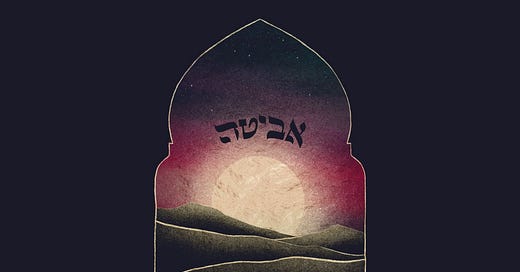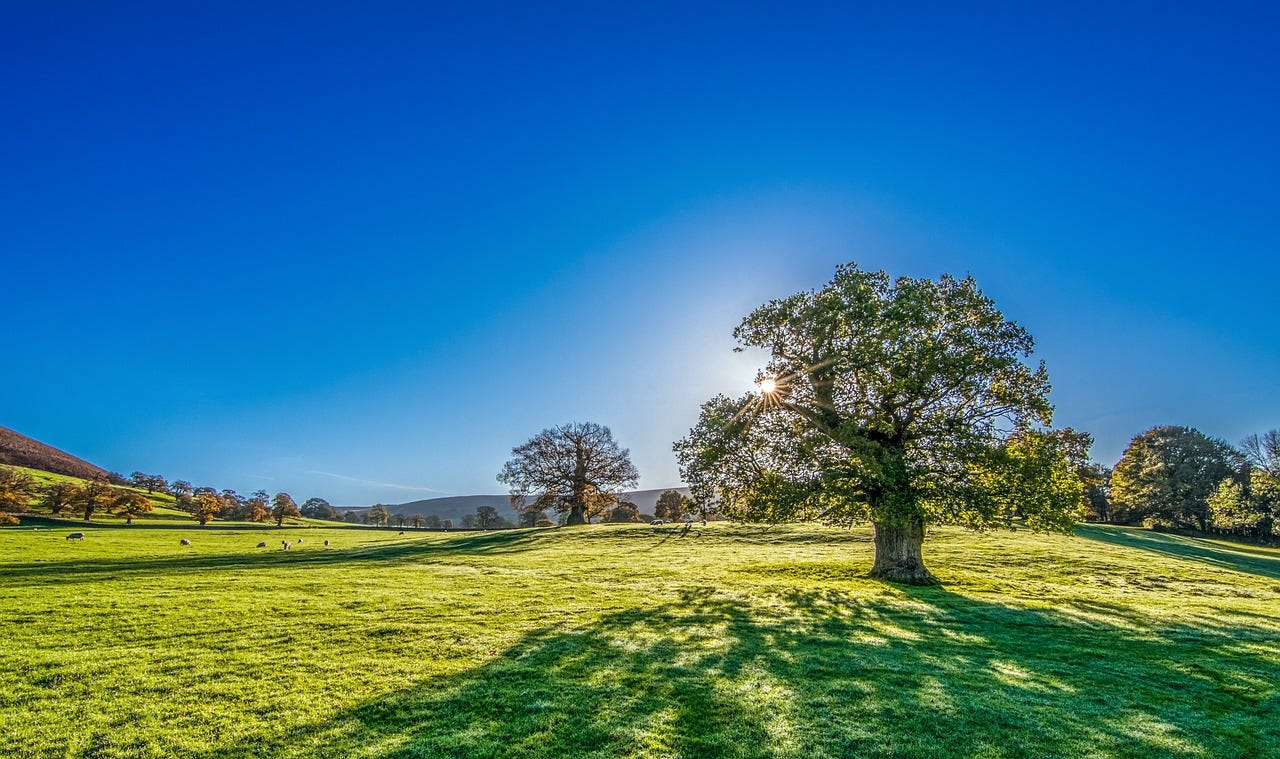Two poems at the end of the Book of Samuel form an epilogue to the story of King David. Yet they express entirely different religious sentiments.
The first poem (II Samuel 22) is what Rabbi Hillel Millgram describes as “The Battle Hymn of the Warlord.”1 King David, here in the height of his power, triumphantly attributes his strength and victory in battle to God’s mighty hand.
The second poem (II Samuel 23) is a striking contrast. These last words of King David, facing the end of his life, offer instead a moment of humility and vulnerability: “He who rules justly among men / Ruling in awe of God / Is like the morning light at sunrise / The brilliance of a morn without clouds, when, after the rain, grass [sprouts] from the earth (II Sam. 23:4).” After the follies and failings of his late career, David makes a sensual affirmation of justice and decency and a humble recognition of the bitter wages of ungodliness, including his own: “They shall be utterly consumed with fire [as] in the days of the sirocco (II Sam. 23:7).”2
These two sentiments — power and vulnerability — are immutable and interweaving parts of all human life. And the experience of music is a simultaneous reckoning of both — an amplification of hidden feeling and a forcible claim to sonic space. In Judaism, a “religion of sound” in which God’s speech both reveals the Law and creates the world, how much sonic space can human beings claim?3
King David had to deal with this question both musically and politically. As a monarch, whose voice and deeds were amplified by musical instruments and mustered armies, how much space should he take up? Both I Samuel 8 and Deuteronomy 17 warned the Israelites against the wealth, power, and earthly majesty that a king could amass, making him a pretender to the reverence that is only due to God. King David was a largely successful monarch and prolific songwriter, yet even he succumbed to the temptations of kingship, and his creative urges had problematic outcomes. And so the wizened warrior-poet penned this prophetic psalm at the closing of his career. Humbled by experience, he teaches that exercise of power must be based in just rule and humility before God, equitable principles which apply to all people. It is in this poem as well that he is called the “Sweet Singer of Israel.”
Being a “sweet singer” means, like David, being able to show vulnerability, even while exercising musical power and opening a sonic window to one’s musical interior. This vulnerability is sweet beyond simply being pleasant. It is sweet because it is deeply human. Some are born to power, some achieve power, and some have power thrust upon them; for most human beings, power is fleeting, and often oppressive. But all of us are born into this world vulnerable.
Yosef Goldman’s new album, Abitah, is an exceptionally sweet journey into a Davidic world of vulnerability and musical power. Yosef, a rabbi, dad, and skilled spiritual musician creates a diverse soundscape spanning the poles of his own hybrid Ashkenazi and Mizrahi heritage. Recorded in Israel, the record’s musical influences reflect the eclecticism of modern Jewish devotion — from the sounds of the Middle East, cantorial vocalism, and contemporary Israeli chant circles to Hasidic nigunim, contemplative jazz, and psychedelic folk-rock. This rich tapestry of sound is woven through Hebrew texts which evoke God’s presence in moments of pain, brokenness, uplift, and healing.
Of equally Davidic mettle is the work of Hadar’s Rising Song Institute, whose Rising Song Records label released Abitah and has nurtured a new generation of emerging voices in Jewish music.4 In the Book of Samuel, one of David’s ingenious acts of leadership was creating a professionalized army which could activate local communities in the common defense. So too, Rising Song has cultivated a small army of religiously-engaged Jewish vocalists and collaborative studio musicians, creating an ever-flowing stream of new albums and music videos and traveling nationwide to activate local communities with soulful communal singing. This m(itzv)otley crew includes Yosef Goldman, Deborah Sacks Mintz, Chava Mirel, and many others; its David is the masterful spiritual musician and founder of Rising Song, Joey Weisenberg.
Joey’s unfolding world of communal song was just coming into being while I was a cantorial student in New York City. Inspired by a learning he led at my school, Joey was kind enough to let me shadow him while he was serving as music director at the Kane Street Synagogue in Brooklyn, and invited me to sing as part of the choir on his first album (featured above). The magic of those choir loft recording sessions was conjured by Joey’s disarmingly heimish character and deep musical sensitivity, creating an environment of vulnerability and both musical and spiritual adventure.
The spirit of Hadar and Rising Song stuck with me in my early days in the cantorate. I often took then-unpopular positions as a nigunim advocate in the face of cantorial critics mourning the loss of art. Seeing the continued growth and meaning of this genre in Jewish communities and online, I’ve returned in recent years to study the history and meaning of the cantorate — the priestly tradition of Jewish music and complement (if not sometime foil) to the world of the niggun.5
Delivering on Deuteronomy’s charge to the priests, the album Abitah teaches as much as it prays and sings. Extensive liner notes include essays about the music by Yosef Goldman and scholar Jeremiah Lockwood, as well as inspiring, one-page spiritual teachings for each track of the album. In these notes, Yosef beautifully captures the vulnerability and presence which made this music possible:
“The music came from my own prayer life and healing practices, including in times of darkness, of Illness and suffering. In moments of feeling distant from the source of life but still asking “where is God in this moment?” I kept turning toward the mystery and allowed myself to be there with curiosity and attention. There, in the mystery, I found that I stood on sacred ground. The music that I channeled is the very medicine that I needed on my own journey for healing, growth and integration. This music was the sacred wisdom I needed to live. I hope it speaks to others along their own journeys.”
Abitah is available for pre-order on Bandcamp, and will drop on both Bandcamp and Spotify on September 21, during the Aseret Y’mei Teshuva - the Jewish ten days of repentance. To all those on this journey towards the vulnerable places in their lives and hearts, let this album be like the morning light at sunrise, the brilliance of a morn without clouds.
This poem in II Samuel 22 also exists in a second version, Psalm 18, with some emendations for liturgical performance in the Temple.
This translation follows Shlomo Naeh, “A New Suggestion Regarding II Samuel XXIII 7.” For a wonderful analysis of the entire book of Samuel, I recommend Hillel I. Millgram, The Invention of Monotheist Ethics, 2 vol. (Lanham: University Press of America, 2010). Rabbi Millgram offers a close scholarly and literary reading of I & II Samuel, which he ultimately assesses as a sophisticated critique of the male world of power and the work of a female author proffering an alternative religious ethic based on care.
Music theologian Jeremy Begbie points out that the omnipresence of God is most fruitfully understood as likened to a sonic presence, avoiding the zero-sum conflicts between divine and human agency which traditional theologies create by conceiving of God’s omnipresence in the visual realm. See Jeremy Begbie, Music, Modernity, and God (Oxford: Oxford University Press, 2013): 141-175.
The album was produced independently by Yankele Segal in Israel, pushing the bounds of the Rising Song aesthetic and sheltering new musical ground under its Ashkenazi-American wings.
As with all innovations, institutions like the cantorate eventually come to absorb and advocate emergent styles they once abjured. Cantorial schools now assign Joey’s Building Singing Communities. Cantorial organizations publish books of nigunim and emergent melodies and lead monthly song-swapping sessions which draw heavily on this repertoire.






